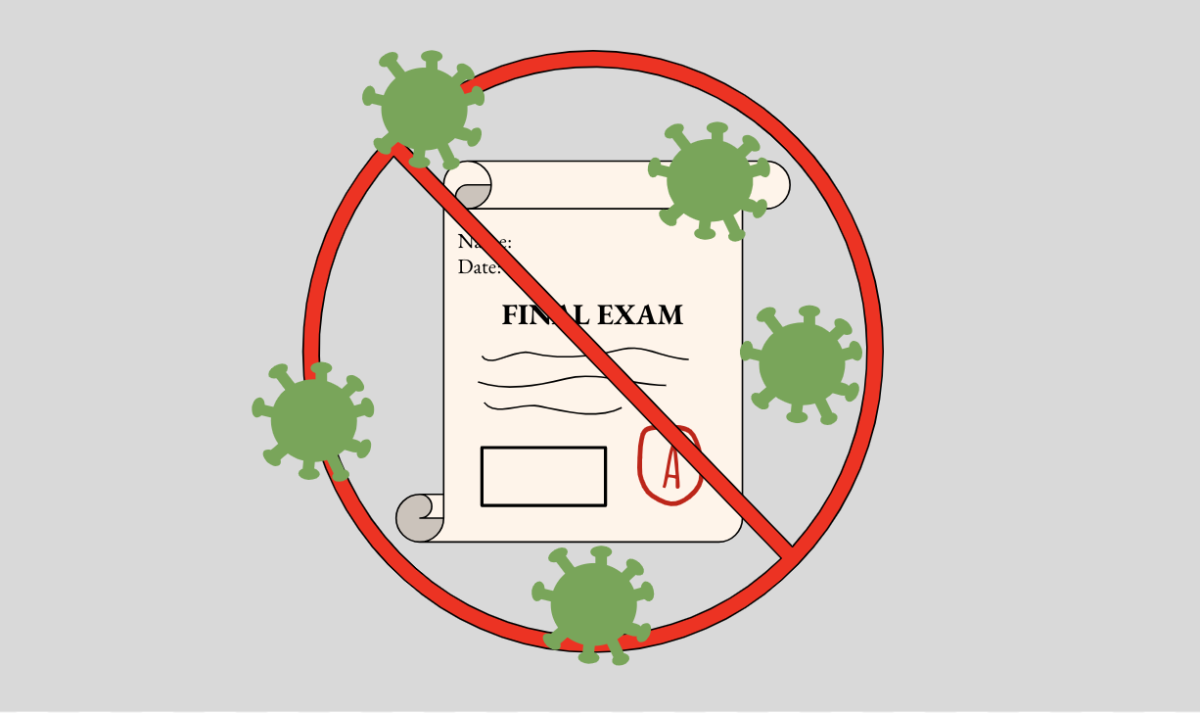Ava Fonss, Arts and Tech Editor
@afonsscourant
As a result of school being closed for the remainder of the 2019-20 school year, the district has decided to only administer final exams in classes that require them to receive credit. Required final exams will be administered through external partners, such as UCONN, which means most students will not take final exams this year. This decision was made to allow students to focus on distance learning and have a successful end to the school year.
School counselor Lindsay Reihl believes that final exams are not appropriate to administer given the current circumstances. “I support the decision that was made, as I think it would be tough to conduct final exams in a distance learning setting,” she said. “There are many factors that are more easily monitored and controlled in a classroom setting where teachers don’t have to be as concerned about issues such as academic integrity, technology, and absences. The amount of content that teachers are able to deliver to students remotely is likely not as much as what they would be presenting in person, so deciding what to put on a final exam would also be a challenge.”
With a wide range of variability in student’s e-learning experiences, the cancellation of final exams could have eased unnecessary stress and pressure on already-struggling students. “While some students are enjoying the more relaxed vibe of distance learning and the flexibility that comes with learning from home, others are missing the organization and structure of the school day that comes from being in the building,” Ms. Reihl said. “With all of the unknown variables pertaining to COVID-19, stress is very common and natural. I remember final exams were always an added stressor for me, so I imagine it is a bit of a relief that students don’t have to prepare for finals.”
However, just because final exams will not be administered, it does not mean that students won’t be ready for their courses in the upcoming school year. “After taking a full year of a course, students should feel well-prepared to advance to the next level with or without a final exam,” Ms. Reihl said. “Although final exams do present students with the opportunity to revisit older material and take a more comprehensive approach to reviewing all of the content of a course, I think that all of the other assignments, projects, papers, class discussions, and homework are great indicators of how successful a student will be in the next level.”

Mathematics teacher and department co-chairperson Anthony Bloss had a similar outlook on the situation. “I did not feel it was appropriate, given what everyone has gone through, to give my students final exams,” he said. “I have used the time that would have been spent preparing for finals by doing a more thorough job covering recent topics and giving students alternative methods of demonstrating understanding such as projects and creating their own problems.”
Teachers are also aware of the circumstances that students are being faced with. “The math department is fully aware that some courses may not have gotten to each concept in their curriculum, and we have already begun planning for how we will account for that next year,” he said. “While we do not believe that this will significantly hinder our students moving forward, we also feel that these gaps need to be addressed next year to give our students the best chance for long-term success.”
Mr. Bloss is also planning to provide his students with resources that they can use to stay on track for next year. “I plan on giving my students final exam review sheets with answers so that they can spend a bit of time over the summer looking through it and ensuring that they understand all the concepts they would have been expected to if we were in a normal school setting,” he said.
Freshman Alexa Banford gave some insight into how students feel about the cancellation of finals. She also spoke about how distance-learning in the face of a pandemic would make studying for finals challenging. “Reviewing content from the entire second half of the year would distract me from focusing on e-learning and the health of my family,” she said. “I believe that enough content and materials have been provided to me remotely, and my teachers have been working hard to make sure that I am staying on track during this time, so I am not personally concerned about my success in the coming school year with the absence of final exams.”
Some students also worry about the lack of teacher supervision in remotely-administered final exams. “Not only would students be stressed out, but teachers wouldn’t know how to handle the possibility of cheating since we would all be at home and would have access to notes and friends, even if multiple versions of a final were made,” said sophomore Cece Peter. “The majority of my classes will completely finish what we had planned for the year, and if we aren’t, we are prioritizing what needs to get done so we don’t fall behind next year.”




